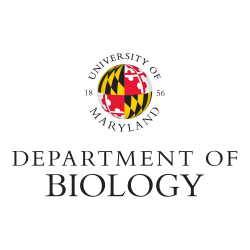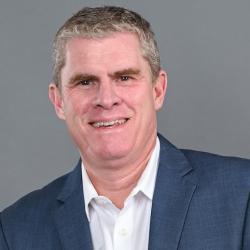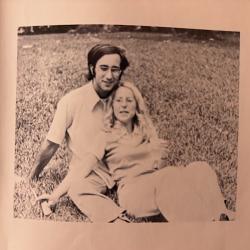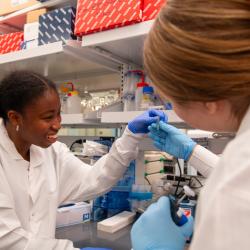Where Science Meets Social Justice
Graduating biological sciences major Jackie Liu sets her sights on Washington, D.C.
Near the end of her freshman year, Jackie Liu was feeling particularly contemplative. As she reflected on two semesters of rigorous labs and courses at the University of Maryland, she wondered if she was truly on the right path.

That’s when fate intervened. Liu’s roommate invited her on a stroll across campus. That simple walk turned into a spontaneous adventure when they discovered the open, unattended gates of Maryland Stadium.
Liu and her roommate snuck in and climbed up to the very top of the stadium. From that vantage point, Liu thought she could see everything happening on campus. She could even make out a pale obelisk in the distance, the Washington Monument—a narrow needle stitching together pieces of darkening sky that filled her with exhilaration. To this day, it’s her favorite UMD memory.
“It was such a special moment for me because I was sharing it with my roommate, now one of my closest friends that I’ve made here at the university,” Liu reminisced. “It kind of felt like a breakthrough moment, just doing something unplanned and then seeing something awesome but unexpected. It’s exactly what I needed at the time.”
Now, three years later, Liu has found her path. She plans to head toward the obelisk—and Washington, D.C.—when she graduates in May. Liu’s degrees in both biological sciences (specializing in physiology and neurobiology) and women, gender, and sexuality studies helped her land a position as a qualitative research associate with the Urban Institute, a nonprofit think tank.
She will conduct focus group interviews and interpret other qualitative data to evaluate how federal health care policies have impacted minorities and other marginalized populations in the U.S. Ultimately, she hopes to combine her scientific research background and aspirations for medical school with her dedication to addressing the underlying social inequities in science.
It wasn’t the career she originally planned, though. In high school, Liu was certain that she would study biochemistry in college after she placed third at the International Science and Engineering Fair for her research in this area. She also interned in a structural RNA lab at the National Institutes of Health, which furthered her exposure to wet lab biology research and the life sciences. But when she began to explore the vibrant student organizations and other academic offerings on campus, Liu found another calling in social activism.
“I was a member of the Asian American Student Union all four of my years here, where I served in executive roles like co-president and vice president of advocacy and community education. During that time, I really developed my political identity and leadership skills, meeting incredible people from all sorts of backgrounds and cultures who helped inspire me to get involved in activism,” said Liu, who was also a Banneker/Key Scholar.
She credits the interdisciplinary nature and diversity of UMD and the College of Computer, Mathematical, and Natural Sciences for helping her discover her passion for social justice and equity.
She says her classes, particularly upper-level electives in the biological sciences program like BSCI 475: Sexual Selection in Nature, were integral to her development both as a student and as a full-fledged member of society. Her professors encouraged her to use critical thinking to analyze complex information and multiple perspectives, adding social context to the hard science she was more accustomed to. And eventually, she recharted her path.
For Liu, experiences as a student at Maryland fueled a desire to do epidemiological, public health-oriented research and encouraged her to live a fuller college experience—something she hopes future generations of Science Terps will do as well.
“For a lot of people starting in the STEM fields, it can seem like all you have to do is check boxes: take this course, focus on wet lab work, go to grad or medical school and get a job,” Liu reflected. “But I think there’s more to being a good scientist or researcher than just the quantitative hard sciences. Don’t be afraid of exploring, of being a little introspective about where you want to grow, of going slightly off course. You’ll never know what doors will open.”







